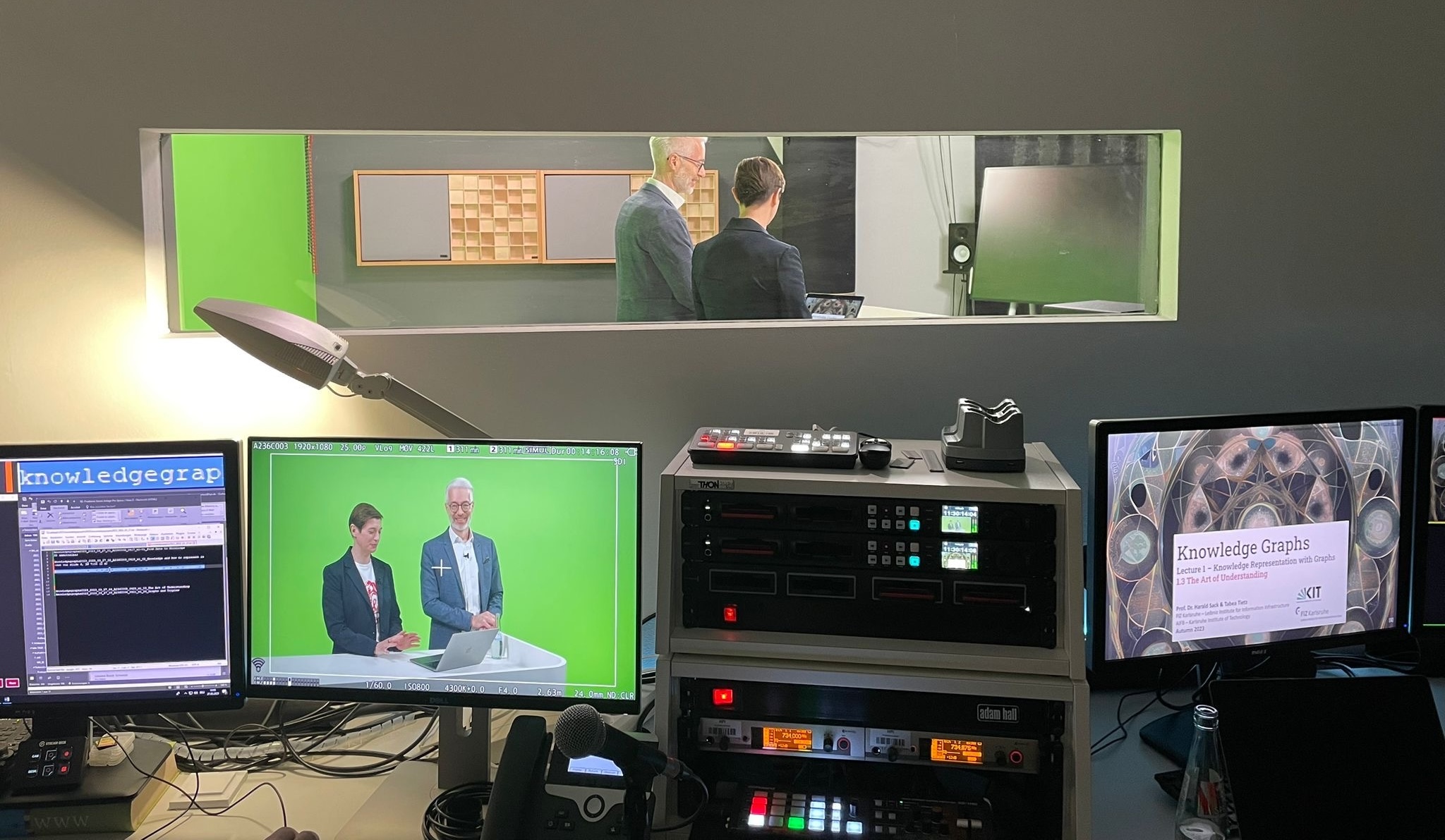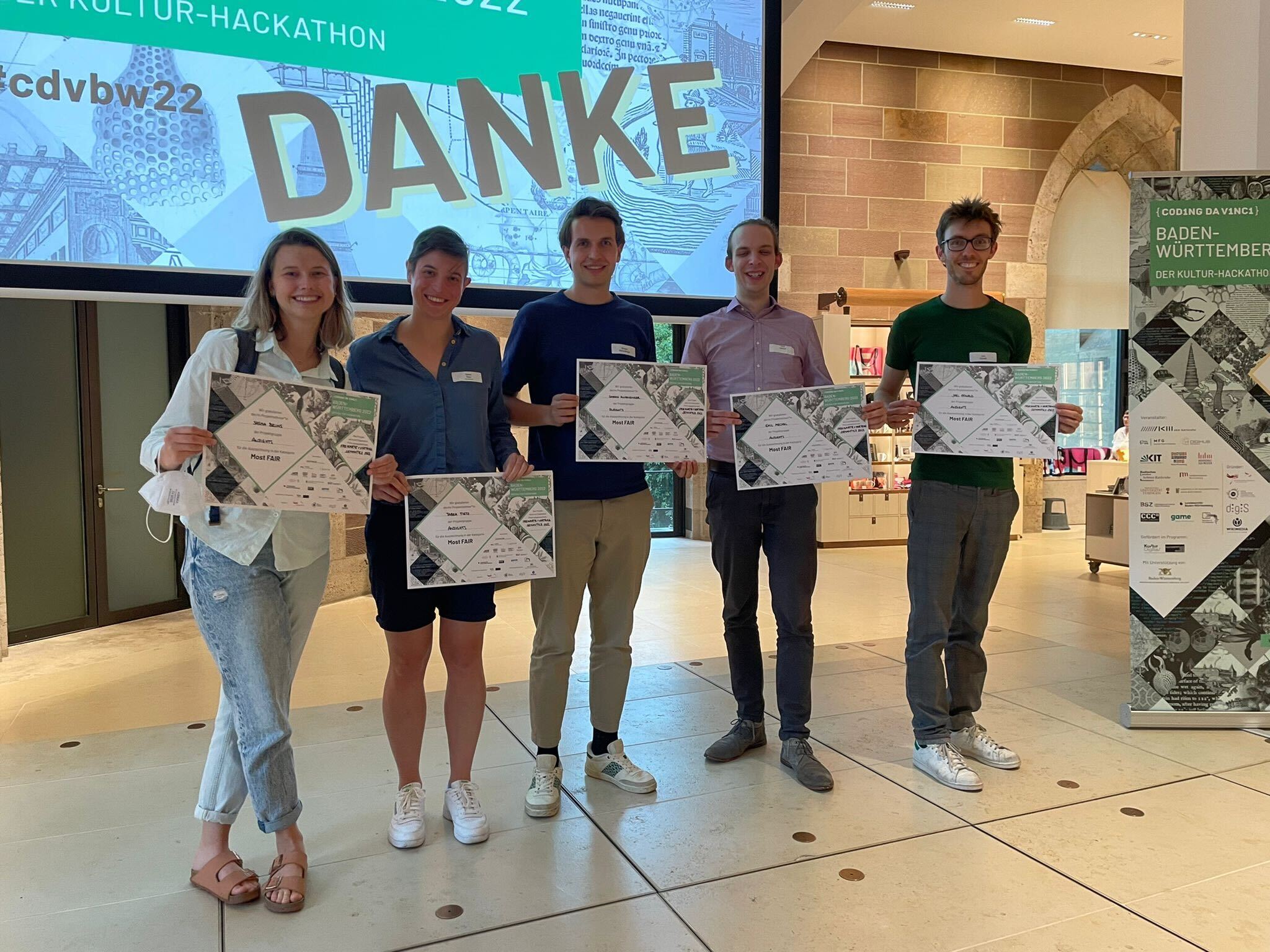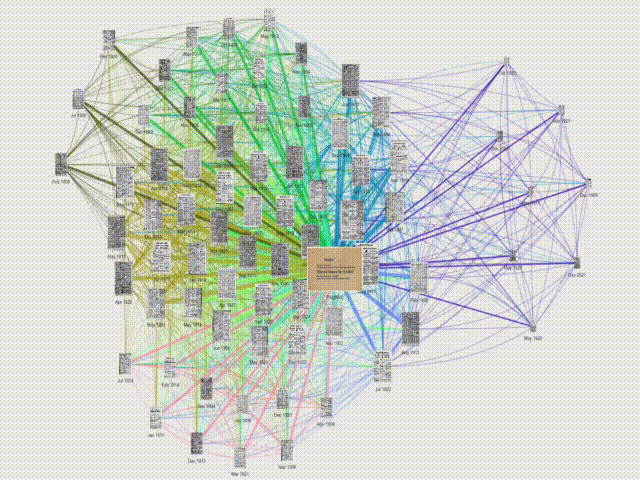Teaching and Supervision

Supervision Experience
- Bachelor Thesis: Aaron Maier: Image Recognition for the Exploration of Historical Photograph Collections, 2021
- Master Thesis: Ilona-Dewi Kusardi: Quality Assured Information Extraction from Historical Address Books for Knowledge Graph Construction, 2021
MOOC Courses at openHPI with Prof. Harald Sack
Knowledge Graphs - Foundations and Applications 2023
The course focused on basic semantic technologies, including knowledge representation, symbolic AI, RDF triples, OWL ontologies, and SPARQL queries. It also covered knowledge graph applications in information systems, their role in AI and machine learning, and their potential to enhance the explainability and trustworthiness of deep learning models like Chat-GPT.
The entire course, including lectures and practical hands-on sessions is available on YouTube.
Tasks: co-lecturing, hands-on tutorials, associated lab course and course forum
Team: Sasha Bruns, Mary Ann Tan, Tabea Tietz, Mahsa Vafaie, Harald Sack
Further MOOCs
- Knowledge Graphs 2020 (associated lab course and course forum)
- Team: Mehwish Alam, Russa Biswas, Fabian Hoppe, Tabea Tietz, Harald Sack
- Information Service Engineering 2018 (associated lab course and course forum)
- Team: Maria Koutraki, Rima Dessi, Farshad Moghaddam, Tabea Tietz, Harald Sack
- Linked Data Engineering 2016 (associated lab course and course forum)
- Knowledge Engineering with Semantic Web Technologies 2015 (associated lab course and course forum)
Lab Courses and Project Seminars at Karlsruhe Institute of Technology
- Master Seminar ‘Data Stories’ in SoSe 2025
- Master Seminar ‘Information Service Engineering Project Lab Course’ in WiSe 2024/25, SoSe 2022, WiSe 2020/21, WiSe 2018/19
- Teaching Assistant ‘Information Service Engineering’ in SoSe 2025 + 2021
Project Course: Data Stories with Semantic Technologies and Generative AI
Large Knowledge Graphs are often overwhelming for non-technical users due to their complexity, making it difficult to understand the structures and contents in a clear and intuitive way. Data Stories are designed to help users explore data; they simplify the complex relationships within Knowledge Graphs, reveal patterns between entities, and provide narrative summaries that highlight the most relevant aspects of large datasets.
In this course, we conceptualize and implement methods for creating Data Stories from large and complex Knowledge Graphs. This includes the creation of visualizations and the use of generative AI to bridge the gap between data creators and users. The students have the chance to combine creativity and practical implementation tasks to develop solutions for real-world projects and problems.
This course is realized in corporation with the Mainz Academy of Sciences and Literature.
ISE Project Lab Course at Coding da Vinci
As part of the ISE Project Lab Course in the 2022 summer semester, we competed with an amazing group of students in the Coding da Vinci Baden-Württemberg Hackathon.
Our projects ansights won in the category Most FAIR.


About ansights
ansights enables an automated content analysis of documents and links them to overlapping content from the historical newspapers Deutscher Reichsanzeiger and Preußischer Staatsanzeiger. For this purpose, a document—such as a leaflet (in this case from the period 1918-1920) can be uploaded. ansights automatically generates keywords from the document and links them to articles from the newspapers. The results are visually presented based on their degree of content overlap. A Knowledge Graph has been created that links the leaflets provided by Haus der Geschichte Baden-Württemberg with their metadata, the automatically extracted keywords, and entities from Wikidata and the German Authority File (GND).
Poster Presentation
Following the award of the MOST FAIR application, we had the opportunity to present ansights during the Poster and Demo session at Semantics 2022 in Vienna, Austria
Team: Simeon Allmendinger, Joel Oswald, Emil Meckel, Sasha Bruns, Tabea Tietz, Etienne Posthumus
(view poster)
